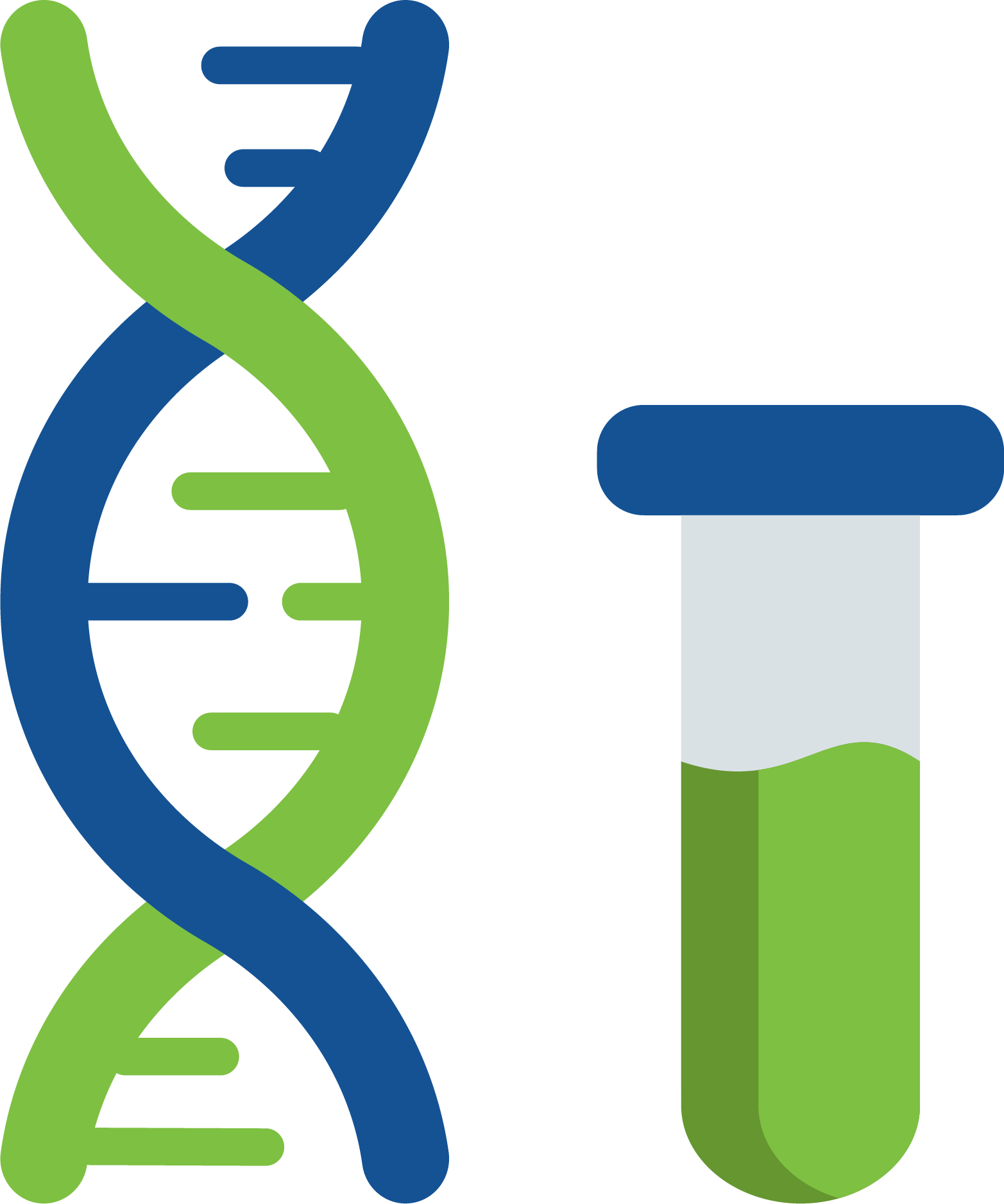Advancing Research Excellence Through Education
Empowering Canada’s clinical research community with trusted, relevant education.
At N2, we believe that high-quality, ethical research begins with strong, accessible education. We are dedicated to supporting Canada’s clinical research community with resources that promote best practices, ensure regulatory compliance, and encourage ongoing professional development. Whether you are new to research or an experienced professional, N2 provides the educational tools to help you stay informed, compliant, and confident in your role.
A cornerstone of N2’s education offerings is the CITI-Canada Program—an online learning platform delivering TransCelerate-recognized courses in both English and French, tailored to Canadian guidelines and research practices. N2 also leverages platforms like Dual Code to enhance access to additional education initiatives, ensuring a seamless learning experience for our members.
Explore the courses below to learn more—or register directly as an independent learner if you’re not part of an N2 member organization.

Courses Included with Your N2 Membership
Your N2 membership includes access to six core courses that cover essential topics like Good Clinical Practice, Division 5 regulations, and research integrity. These foundational courses support compliance and best practices for Canadian clinical research teams. Additional specialized courses are available beyond the base membership.

Good Clinical Practice Basic
This course covers Good Clinical Practice (GCP) based on ICH E6(R2) guidelines and Canadian regulations. It ensures ethical and compliant clinical trial conduct. Recognized by TransCelerate for mutual GCP training acceptance.
Learn More
This 10-module program provides comprehensive education on Good Clinical Practice (GCP) as it applies to clinical trials. The course focuses on the International Council for Harmonisation (ICH) E6(R2) guidelines, alongside Canadian regulations such as Health Canada Division 5 and the Tri-Council Policy Statement 2 (TCPS 2).
The CITI-Canada GCP courses were fully revised to align with the ICH Harmonised Guideline E6(R2): Good Clinical Practice, ensuring up-to-date, internationally recognized training. Both the Basic and Refresher versions are available in English and French, with translations supported by Fonds de Recherche du Québec – Santé (FRQS) and Consortium de recherche en oncologie clinique du Québec (Q-CROC). N2 is grateful for their valuable contributions.
Both GCP courses meet the ICH GCP Investigator Site Personnel Training criteria identified by TransCelerate BioPharma, allowing for mutual recognition of GCP training among trial sponsors. This recognition underscores N2’s commitment to providing high-quality, accessible education that meets the standards of biopharmaceutical companies, research networks, hospitals, and universities across Canada.
Course Versions
-
Version 1 — March 28, 2014
-
Version 2 — April 4, 2018 (includes ICH E6(R2) updates)
Who Should Take This Course?
This course is designed for individuals conducting clinical trials in Canada, particularly those working with TransCelerate-affiliated sponsors. Completion of the CITI-Canada GCP course assures compliance with recognized training standards, making it widely accepted as the gold standard by biopharmaceutical companies, research institutions, hospitals, and academic organizations.

Good Clinical Practice Refresher
This course refreshes GCP principles based on ICH E6(R2) and Canadian regulations. It ensures ongoing ethical and compliant clinical trial conduct. Recognized by TransCelerate for GCP training acceptance.
Learn More
This 7-module refresher course reinforces Good Clinical Practice (GCP) principles for clinical trials, focusing on ICH E6(R2) guidelines and Canadian regulations such as Health Canada Division 5 and the Tri-Council Policy Statement 2 (TCPS 2).
The course has been updated to align with the ICH Harmonised Guideline E6(R2), ensuring that learners receive current, internationally recognized training. It meets the ICH GCP Investigator Site Personnel Training criteria set by TransCelerate BioPharma, enabling mutual recognition of GCP training across trial sponsors.
Both the GCP Basic and GCP Refresher courses are available in English and French, with translation support provided by FRQS and Q-CROC. N2 acknowledges and appreciates their contributions.
Course Versions:
-
Version 1 — March 19, 2015
-
Version 2 — January 25, 2017 (includes ICH E6(R2) updates)
Who Should Take This Course?
This course is designed for individuals conducting clinical trials in Canada who require a refresher on GCP principles. It is particularly relevant for those working with TransCelerate-affiliated sponsors, ensuring your training meets recognized industry standards accepted by biopharmaceutical companies, research networks, hospitals, and universities.

Health Canada Division 5 - Drugs For Clinical Trials Involving Humans
This course covers Health Canada’s Division 5 regulations for clinical trials involving drugs. It ensures Qualified Investigators and site personnel understand and meet regulatory compliance requirements. Completion provides recognized evidence of Division 5 training.
Learn More
The Food and Drugs Act and Food and Drug Regulations govern the sale and importation of drugs for use in human clinical trials in Canada. Part C, Division 5 of the Regulations specifically addresses drugs used in trials involving human participants.
Health Canada requires that Qualified Investigators ensure compliance with Division 5 and the ICH-GCP E6(R2) Guideline for all site personnel involved in the trial. Demonstrating evidence of training is a key compliance requirement.
Successful completion of this CITI-Canada Division 5 course serves as recognized evidence of training. The course covers all research conducted under Division 5 and provides practical strategies for meeting regulatory obligations.

Responsible Conduct of Research Mega Course
This course covers ethical principles and best practices for responsible research in Canada. It addresses authorship, data management, conflicts of interest, and research integrity. Ideal for researchers, students, and research personnel.
Learn More
How should you conduct your research? What practices ensure integrity and compliance?
Researchers are expected—by their peers, institutions, and the public—to follow established norms, ethical principles, and regulatory requirements.
The Responsible Conduct of Research (RCR) course provides a comprehensive foundation on the standards and expectations that govern responsible research practices in Canada. Through a series of focused modules, learners gain essential knowledge to uphold research integrity across disciplines and roles.
Course Modules Include:
-
Introduction to RCR
-
Ethics and the Responsible Researcher
-
Publication Practices and Responsible Authorship
-
Collaborative Research & Conflicts of Interest
-
Data Management
-
Mentorship Responsibilities
-
Peer Review Standards
-
Writing with Integrity
-
Research Involving Human Subjects
-
Research Misconduct
-
Research Involving Animal Subjects
Who Should Take This Course?
This course is designed for researchers, students, and research personnel across a variety of disciplines who seek to strengthen their understanding of responsible research practices.

Transportation Of Dangerous Goods/ International Air Transport Association (TDG/IATA)
This course covers safe handling and transportation of dangerous goods in research. It is intended as a refresher; formal certification is the employer’s responsibility.
Learn More
Compliance with Transportation of Dangerous Goods (TDG) and International Air Transport Regulations is critical for anyone handling dangerous materials, agents, or devices in research. Specific training for investigators and staff helps ensure adherence to applicable laws and safety standards.
This 6-module course covers:
-
Introduction to TDG and IATA regulations
-
Classification of dangerous goods
-
Safety markings, packaging, and containment systems
-
Marking and labeling requirements
-
Documentation procedures
-
Emergency Response Assistance Plans (ERAPs) and Accidental Release Reporting
Important Note:
TDG training requirements under Transport Canada are employer-specific. Employers are responsible for determining necessary training, issuing training certificates, and ensuring compliance. The certificate provided by CITI does not fulfill Transport Canada’s certification requirements but is widely used by N2 members as a refresher or supplemental education tool. Sites should assess whether additional formal training is required.
Who Should Take This Course?
Suitable for researchers, lab staff, clinical research personnel, and anyone involved in the handling or transportation of dangerous goods.

Cultural Competency Skills in Clinical Research
This course builds cultural competency skills for conducting inclusive and respectful clinical research. It focuses on equity, diversity, inclusion, and accessibility to improve participant engagement and research outcomes.
Learn More
This course is designed to equip learners with the skills and knowledge necessary to engage effectively with individuals from diverse cultural backgrounds, in the context of clinical research. Please contact n2@n2canada.ca for information on how to access this course.
Expand Your Learning with Additional Courses
These specialized courses are available outside of N2’s base membership and may be accessed through your organization or by individual request. They offer deeper insights into topics like biomedical ethics, privacy, medical devices, and clinical research coordination.

Biomedical Research Ethics
Covers core ethics and regulations for biomedical research with human participants. Includes consent, privacy, and ethics review basics. Ideal for anyone involved in biomedical studies.
Learn More
This 9-module course explores key ethical and regulatory considerations in conducting biomedical research involving human participants.
It provides both historical context and current practices to help learners understand their responsibilities in protecting research participants.
Topics include:
-
Canadian and international research ethics guidelines
-
The role of Research Ethics Boards (REBs) and the ethics review process
-
Risk, benefit, and harm assessment
-
Free and informed consent
-
Privacy and confidentiality
-
Conflicts of interest
-
Special considerations in research design
Who Should Take This Course?
This course is appropriate for anyone involved in biomedical research with human participants, including investigators, coordinators, and research staff.

Clinical Research Coordinator (CRC)
Covers key responsibilities and processes for Clinical Research Coordinators. Includes site management, ethics, and informed consent. Ideal for new or early-career CRCs.
Learn More
The CRC Course provides foundational, role-based training for individuals working—or preparing to work—as Clinical Research Coordinators. It’s ideal for onboarding new CRCs or supporting early-career professionals seeking a clear understanding of the CRC role.
The course connects directly to N2/CITI-Canada’s Biomedical Research Ethics and Good Clinical Practice (GCP) courses. We recommend completing the Biomedical Research Ethics course first, as it offers important background on research involving human participants.
Modules Include:
-
Introduction to Clinical Research Coordination
-
Planning Research & Securing Funding
-
Working with Research Ethics Boards (REBs)
-
Protocol Review, Approvals & Site Management
-
PI, CRC, and Sponsor Responsibilities
-
Informed Consent & Participant Communication
-
Clinical Trial Agreements (CTAs)
-
Coordinating U.S. Regulated Studies
-
Tools, Resources, and Best Practices
Who Should Take This Course?
Designed for CRCs, investigators, and research professionals—especially those with 1–2 years of experience or those entering the field.

Foundations of Research in Privacy
Covers privacy laws, data handling, and breach response in health research. Designed for those conducting, reviewing, or overseeing research involving personal data.
Learn More
Research organizations are increasingly challenged with managing and protecting the personal information collected during the research process. To support best practices, N2 developed this introductory course on privacy and security for personal information (PI) and personal health information (PHI) in the research environment.
The course provides learners with a foundational understanding of:
-
Privacy legislation governing the collection, use, sharing, access, and disposal of PI and PHI
-
Principles of records and information management
-
Best practices for preventing and responding to privacy breaches
Who Should Take This Course?
This course is designed for anyone who administers, reviews, or conducts health research—including clinical trials—that involves collecting or handling health data.
For access, please contact: n2@n2canada.ca

Medical Device
Covers key requirements for conducting medical device trials in Canada. Includes risk categories, investigator duties, licensing, and regulatory differences. Ideal for those involved in device-based clinical research.
Learn More
This course provides an overview of key topics related to conducting medical device trials in Canada.
It covers medical device risk classifications, relevant ISO standards, investigator responsibilities, and the process for obtaining Investigational Testing Authorization (ITA). Learners will also explore licensing submission requirements, trial monitoring and auditing, and the differences between Canadian and U.S. regulatory frameworks for medical device research.
For access, please contact: n2@n2canada.ca

Social and Behavioural Research Ethics
Covers key ethics principles for social and behavioural research. Includes TCPS guidance, risk, consent, and vulnerable populations.
Learn More
This course introduces key ethical considerations specific to conducting social and behavioural research with human participants.
It provides a deeper look at the current Tri-Council Policy Statement (TCPS), going beyond the standard tutorial offered by the Panel on Research Ethics, with content tailored to the social and behavioural research context.
Modules Include:
-
History and Ethical Principles
-
Defining Research with Human Participants
-
TCPS and Ethics Review
-
Risk Assessment in Social/Behavioural Sciences
-
Informed Consent
-
Privacy and Confidentiality
-
Research with Children and Vulnerable Populations
-
Internet Research
-
Conflicts of Interest
Who Should Take This Course?
Ideal for anyone involved in social and behavioural research, including healthcare providers, academics, researchers, REB members, administrators, and coordinators.
N2 serves as CITI Canada, partnering with the Collaborative Institutional Training Initiative to provide a national education platform supporting research ethics and compliance training. Together, we offer high-quality, web-based courses tailored to Canadian guidelines and regulatory requirements. These TransCelerate-recognized courses promote the ethical, safe, and responsible conduct of research involving human participants.
Since 2010, N2 has held the rights to adapt and deliver CITI-Canada content, ensuring it continues to meet the evolving needs of Canada’s research community. The program includes a curriculum of 8 interactive courses, with certificates issued upon successful completion.
FAQ about N2 Education
Who can take these courses?
These courses are available to individuals involved in clinical research across Canada—including N2 members and independent learners.
What’s the difference between base membership courses and additional courses?
N2 member organizations automatically have access to six core courses. Additional specialized courses are available for individual or organizational access beyond base membership. Please reach out to n2@n2canada.ca for access to additional courses.
I’m not part of an N2 member organization. Can I still take a course?
Yes! Courses are available to independent learners. Just click the “Independent Learner Registration” button under the course you’re interested in.
Are the courses available in both English and French?
Yes. All N2 education courses are fully available in both English and French.
Do I get a certificate after completing a course?
Yes, most courses provide a certificate of completion, which can be used as evidence of training for regulatory or institutional purposes.
Is there a cost to take these courses as an independent learner?
Yes. Each course costs $304 + GST for independent learners and includes one year of access from the date of purchase.
You can register directly using the “Independent Learner Registration” button under the course you’re interested in.
Need help with access or have any additional questions?
We’re here to help—reach out to n2@n2canada.ca and we’ll point you in the right direction.
